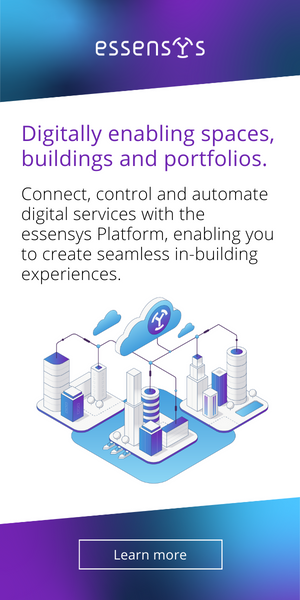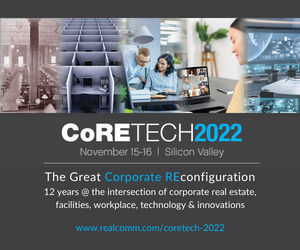Doubling Up: RE Investors, Investment Staff Share Advanced Tech Benefits

Nobody claims real estate investment management is easy. But does it have to be unduly difficult? No – if investment managers and their clients leverage technology that lets them execute the process easily and efficiently.
The industry has been slow to embrace modern options due to adoption complexity, costs and other factors – even as errors in data entry and confusion arising from using disparate systems for investment, investor, and accounting systems pile up. In fact, many real estate investment organizations issue paper reports and capital calls to investors by email or regular mail, pay distributions with paper checks, go back and forth in email to complete the subscription agreement process and utilize spreadsheets to calculate returns and distributions. That’s not new – investment managers have traditionally relied on spreadsheets and manual data entry tools as their information management technology.
But with the market space becoming increasingly competitive and investors and regulators becoming increasingly specific demands for accountability and data accessibility, it's time to stop relying on antiquated spreadsheets and documents sent by email and regular mail.
The need for higher-capability investment management technology is driven by investors' broadening interest in the operational aspects of their real estate investments. Investors want to go beyond financial performance and understand a property's day-to-day operational elements such as rental income, leasing activity, marketing and capital improvements, and how their assets will be enhanced in value and income generation. In other words, investors, realizing that property operations impact cash flow and ultimately give rise to distributions and higher asset value, want not only the numbers but also what is driving them.
A single platform for all operations
Fortunately, over the past several years, software providers created technology that transformed investment management for real estate. Today, state-of-the-art comprises cloud-based, fully integrated software platforms designed to enhance the quality, accuracy and transparency of analysis and reporting.
An integrated technology platform continuously collects data related to facilities maintenance, construction projects and other operational details that impact asset value. This generates a vast pool of insight into an asset's years-long investment lifecycle, instilling confidence that enables faster, better-informed investor decisions. Investor managers utilizing such a platform can view property-level metrics and collaborate and communicate with existing and prospective investors through a secure portal rather than email.
And it's not just investors who benefit from these types of advanced software applications – internal stakeholders do too. Executives needing a report, for example, can get it themselves from the centralized database without asking and waiting for Accounting to produce it. Investor Relations can have full access to investor information readily available from the platform.
Yardi Investment Manager is one example of a technology platform that provides a single source of the truth for investor and investment information without disparate systems and manual data transfers. It also automates the subscription agreement process and makes publishing reports and other documents easy through an online branded portal.
ESG performance is crucial
And there’s another emerging key factor contributing to the evolution of investment management technology – environmental, social and governance issues. ESG data, if gathered and applied properly, can be a tool that helps organizations apply asset environmental performance as a driver of returns. A company’s response to ESG expectations and its sustainability upgrades can broadly impact operations ranging from borrowing rates and lease negotiations to talent attraction and tenant retention.
Managing ESG involves gathering, tracking and disseminating consumption data for a property or a portfolio. These tasks are more arduous when the data is stored in different systems. And, as with other elements of property and investment management, using a single platform simplifies the process of gathering, tracking and disseminating property consumption data and rolling it up to the portfolio level. This approach also minimizes opportunities for ESG noncompliance and the penalties and dissatisfaction among tenants and investors.
As an ENERGY STAR® Partner of the Year Sustained Excellence Award winner that has achieved ENERGY STAR certifications for its own office properties, Yardi has the expertise to work with utilities and our client building owners, tenants and residents on these priorities.
Satisfying tech-savvy, sophisticated and inquisitive investors require mitigating risks, optimizing returns, enhancing value and making information available when it's needed. Investors gain confidence knowing that their partners are leveraging a comprehensive technology platform, one that manages all aspects of the investment lifecycle, delivers timely and accurate information and minimizes risk. And, best of all, the decision-making tools contained within a single system exceed what investors can achieve with spreadsheets, outdated technology and uncoordinated databases.
This Week’s Sponsor
Yardi® develops and supports industry-leading investment and property management software for all types and sizes of real estate companies. Established in 1984, Yardi is based in Santa Barbara, Calif., and serves clients worldwide. For more information on how Yardi is Energized for Tomorrow, visit yardi.com.
Read Next
 5/29/2025
5/29/2025
AI Can’t Fix Bad Data. These Ideas Can Get You on the Right Track. Real estate visionaries constantly integrate innovative technology to make their organizations more efficient.
 5/22/2025
5/22/2025
Managing Building Automation and Integration Like an Investment Portfolio What if your building automation and integration decisions were managed with the same precision, discipline, and long-term vision as Warren Buffett’s investment portfolio?
 5/15/2025
5/15/2025
Tech, Talent and Transformation: 2025 Digie Finalists Announced For 27 years, Realcomm has presented the Digie Awards to acknowledge companies, real estate projects, technologies, and individuals that have advanced the commercial real estate industry through the strategic use of technology, automation, and innovation.
 5/15/2025
5/15/2025
Empowering Space Management with Data-Driven Visualization For effective CRE space management, it’s critical to centralize lease data, maximize rental square footage (RSF), improve energy efficiency and reconfigure spaces to meet changing needs.









%20(1)%20(1)%20(1).png)




